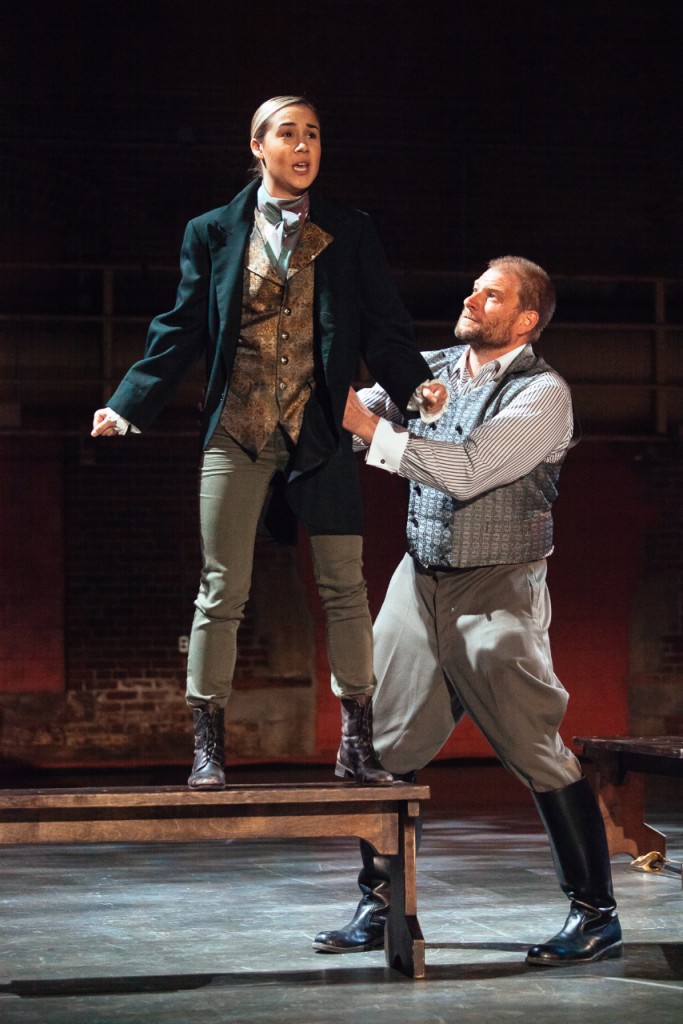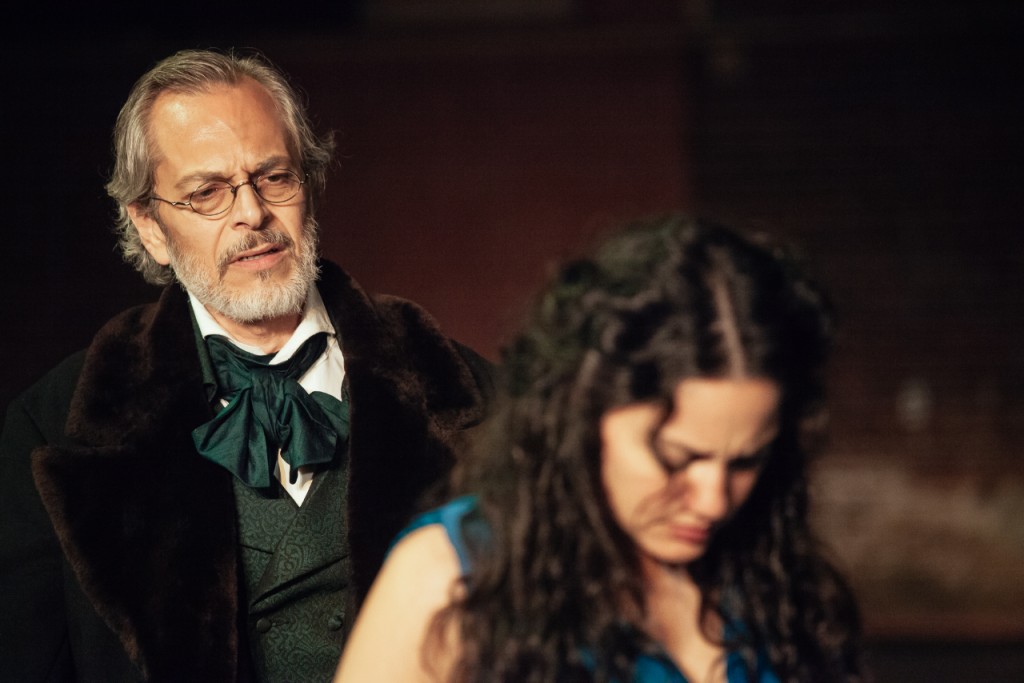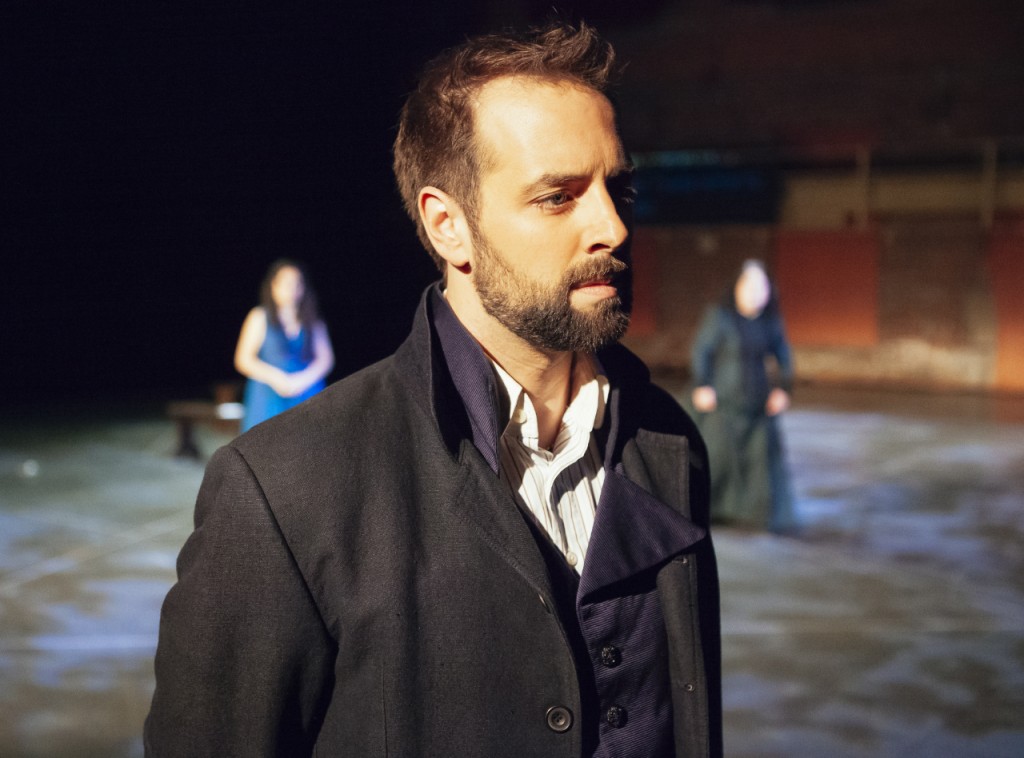
In review: Pelléas et Mélisande
ReviewDo you like Debussy? Go see this show. Do you like art? Go see this show. Do you like a coherent plotline that’s easy to follow and sticks to a linear timeline? Maybe, prepare yourself before seeing this show. Last night my senses were were titillated by the latest instalment from Against the Grain Theatre (in my opinion, the leaders opera today): a delightfully impressionistic outdoor performance of Debussy’s masterpiece Pelléas et Mélisande.
Personally, I think it would have blown Claude’s mind just as much as it did my own.

Artistic Director Joel Ivany, who I’ve had the unparalleled privilege to work with on several occasions, does it again. He’s taken an opera that is fairly rare in the grand scheme (but known to the operatic community at large), and makes it accessible, sensitive, nuanced, and decidedly impressionistic.
The cellular composition of the piece doesn’t lend itself to any ensemble singing (nor was any written), and the “arias” are really genuine monologues or soliloquies with little repetition and a lot of information. The storyline of a young lady Mélisande (Khalil) discovered in the woods by Prince Golaud (Gregory Dahl - #swoon), married and brought home only to have the consequences of her arrival destroy the house of King Arkel (Coulombe #doubleswoon) and bring about the end of the idealistic Pelléas (Dupuis - #tripleswoontimesinfinity). My only issue was that the non-linear timeline would have been helped by the addition of dates or a “six months later” to the location slides in the surtitles. That being said it was the only thing I missed.

First let it be known, there is no tenor in this show. Sorry bro, next time.
Now down to brass tacks.
Soprano Miriam Khalil shows us once again why she’s one of Canada’s best young sopranos. Her voice is silky, smoky, and so very expressive. Coupled with her strong acting choices and her remarkably exotic look, it’s easy to understand why her Mélisande brings all the boys to the yard.
As the lovestruck Pelléas, baritone Étienne Dupuis lulls you into a false sense of security and “piano” in the first act, only to unleash the full breadth of his masculine, lyrical tone in the second. The use of straight tones alongside full, free singing added a depth of brushstroke to the music that truly supported Pelléas’s emotional journey.

The most thrilling for me was none other than Gregory Dahl as Prince Golaud. Not to mention he sings like a god, but his characterization was so nuanced you could easily understand how his love can push him into obsession. I was particularly entranced in his scene with the lovely young soprano Andrea Nuñez in a pants role as Golaud and Melisande’s son Yniold. Their energy was palpable and Nuñez’s Yniold showed us a mature young performer poised to take the opera world by storm.
Two of my all-time favourites rounded out this cast of superb singers. Bass Alain Coulombe was remarkable. His lower register filled the Tanenbaum Courtyard with aplomb. Mezzo-soprano Megan Latham, usually a bright star in every performance, sounded a little thin in the outdoor courtyard (which is not something experienced when Ms. Latham is heard indoors to be certain, clearly this was environmental), but her stately Geneviève was a clinic in how to portray a lady of class properly onstage.
Camelia Koo’s set and Jason Hand’s lighting once again blow my mind. The use of the location and grassy portions to represent water with lily-pad stones strewn about to as bridges for the actors to walk on was a simple visual metaphor that didn’t leave the theatric neophyte confused; couple that with Hand’s masterful understanding of how to make artificial light look natural provided us with a moonlight that was both warm and decidedly French. Ming Wong’s costumes were a cut above the rest, we should all be lucky enough to be dressed by her.
The orchestra in pianist Julien LeBlanc’s fingers lent a subtlety and finesse to Debussy’s keyboard which is essential in successfully creating the impressionist composer’s decidedly eponymous harmonies.
I loved this show. I loved the space, I loved the treatment. I loved seeing the smile on Stuart Hamilton’s face at the end of each act. The design is gorgeous, and above all it’s supberbly sung and acted. Thanks again, Against The Grain Theatre, for showing us how opera should be done! Bravi Tutti.
HONORABLE MENTION: The trio of wild birds that helped underscore the first act, actually lent to the outdoor freshness of the setting without detracting from the music and action.


Comments